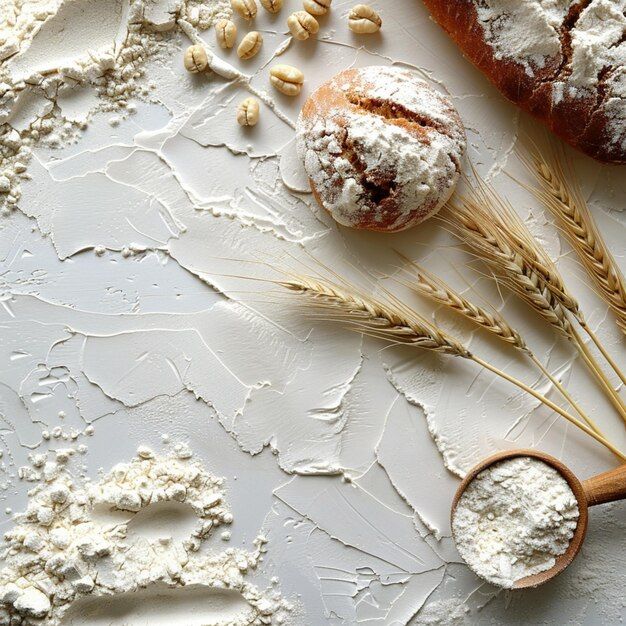Categories
The latest content
-

Customs Clearance & Import Regulations for Bulk Iranian Pinto Beans in EU, Middle East & Africa
..
-

Quality Control & Laboratory Testing Standards for Iranian Pinto Beans
..
-

Logistics & Shipping Solutions for Bulk Iranian Pinto Bean Exports
..
-

Minimum Order Quantity (MOQ) & Bulk Pricing for Iranian Pinto Bean Buyers
..

Tags
Iranian Wheat Flour Varieties Explained; All-Purpose, Bread, Pastry & Specialty Types

Iranian wheat flour is renowned for its quality, versatility, and suitability for both domestic and international markets. Understanding the different varieties is key for importers, bakers, and food manufacturers seeking the right flour for their specific needs. From everyday baking to industrial applications, Iran produces a wide range of wheat flours tailored for various uses.
All-Purpose Flour: Versatile & Reliable
All-purpose flour is the most commonly used type in kitchens and commercial bakeries. It offers:
• Balanced protein content suitable for bread, cookies, and cakes.
• Smooth texture and consistent performance.
• Flexibility for both home and industrial applications.
Importers seeking a versatile wheat flour for multi-purpose use will find Iranian all-purpose flour a reliable choice, meeting global quality standards and food safety certifications.
Bread Flour: High-Protein for Perfect Dough
Bread flour from Iran is specifically milled to support yeast fermentation and gluten development. Its features include:
• Higher protein content (typically 12–14%).
• Strong gluten network for superior dough elasticity.
• Consistent rise and texture for artisan and industrial bread.
Bread flour is ideal for large-scale bakeries and food manufacturers looking for high-quality wheat flour that produces uniform, fluffy bread.
Pastry Flour: Soft Texture for Delicate Baking
For delicate pastries, cakes, and cookies, pastry flour offers:
• Low to moderate protein content for tender texture.
• Fine, soft grind that improves dough handling.
• Excellent performance in layered pastries and fine desserts.
This variety ensures premium baking results, catering to confectionery industries and international pastry markets.
Specialty Flours: Tailored for Niche Applications
Iran also produces specialty wheat flours for specific culinary or industrial needs, such as:
• Semolina flour for pasta and noodles.
• High-gluten flour for bagels and pizza crusts.
• Whole wheat flour for health-conscious and organic products.
• Organic flour meeting international organic certification standards.
These specialty flours provide opportunities for targeting niche markets, health-focused consumers, or industrial food production.
Choosing the Right Iranian Wheat Flour for Your Market
When selecting wheat flour for export or large-scale use, consider:
• Intended application: Bread, pastry, or multi-purpose baking.
• Protein content: Determines gluten strength and dough elasticity.
• Certifications: ISO, HACCP, Halal, Organic, or other market-specific standards.
• Packaging and bulk options: Suitable for shipping and storage in international markets.
Understanding these factors helps buyers ensure product consistency, satisfy regulatory requirements, and meet consumer expectations.
Benefits of Importing Iranian Wheat Flour
• Premium quality with consistent performance.
• Compliance with international food safety and quality standards.
• Versatility across different baking and industrial applications.
• Competitive pricing for bulk buyers and wholesalers.
Conclusion
Iranian wheat flour offers a broad spectrum of varieties, from all-purpose and bread flour to pastry and specialty flours, catering to both domestic and international needs. By selecting the right type, importers, food manufacturers, and bakeries can ensure superior product quality and meet the expectations of their target markets.
At Tamila Agrifood, we supply fully certified Iranian wheat flour in bulk, helping global buyers access high-quality, reliable, and versatile wheat flour varieties.
Email: tamilaagrifood@gmail.com
Call / WhatsApp: +989141858935



